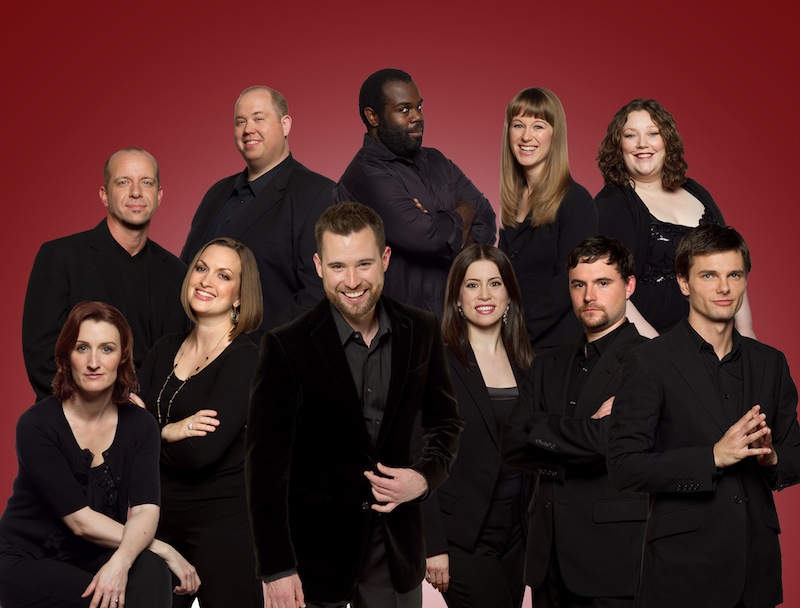Miami-based Seraphic Fire makes memorable Chicago debut under trying circumstances

While the Bears were being trounced under the heels of the Green Bay Packers Sunday afternoon, a group of some fifty dedicated music lovers gathered in St. Paul’s United Church of Christ in Lincoln Park to hear the Chicago debut of a remarkable Miami-based chorus, Seraphic Fire.
Artistic director Patrick Dupré Quigly had taken ill before the brief Midwest tour, which included stops in Indiana and Wisconsin before culminating in Chicago. Bass James K. Bass came out of the ranks and conducted the group for the tour, appreciably thanking the sparse crowd for coming out while “another event” was going on. He was replaced within his section by a bass from Chanticleer who joined the tour at the last minute.
Under these unique and trying circumstances, expectations were not particularly high, though standards, as it turned out, remained exceedingly high. Having never heard Seraphic Fire before, it is difficult to assess how much a difference there would have been had the group been performing with its regular conductor and personnel to a capacity crowd without a citywide sporting distraction.
Even so, it was clear from the tangy Russian Orthodox liturgical settings by Dmitri Bortniansky and Nickolai Kedrov that opened the afternoon and which emerged from silence out of the back balcony of the church, that this was no ordinary chorus.
Though the group sounded top heavy at first (curiously, it has four sopranos, though three singers each for the other three sections), proceeding in from the rear of the church during two movements from Arvo Pärt’s ethereal Missa Syllabica gave the men a chance to be more discernible.
It is also an asset that unlike choruses divided in half by male and female voices, the all-male Chanticleer, with its testosterone-imbued timbre, or the distinctively feminine sound of the all-female Anonymous 4, by having one male singer each in the soprano and alto sections, the overall group sound is refreshingly asexual in the best sense.
Post-Christmas settings included a tender performance of John Tavener’s The Lamb and a powerful rendition of Elizabeth Poston’s Jesus Christ, the Apple Tree where the group fanned out across the church and went from singing unison to spreading out chromatically to singing in rounds to stunning effect.
Countertenor Reginald Mobley’s solo and ornamental take on the spiritual There is a Balm in Gilead served as a reminder that every singer in the group is a gifted soloist that chooses to subvert an individual sound to a collective one.
The most curious piece on the program was a live vocal transcription of Ingram Marshall’s Hymnodic Delays, electronic manipulations of a vocal quartet singing American hymns that only existed in the can, as it were, until Seraphic Fire sought to perform it live, which Marshall agreed to only after considerable reservation.
The three movements performed from the work spotlight four-part harmony, but processed through various timbres and tape loops, delays, et al, all of which are emulated by Seraphic Fire with a sense of commitment and calm that was stunning to behold. These are not, say, humor-imbued, wink-and-a-nod transcriptions in the manner of the Swingle Singers or Bobby McFerrin, but a serious attempt to replicate mechanized sounds via live voices.
Performed pieces written for the group included Alvaro Andres Bermudez’ Padre Nuestro with its swinging lullaby quality and Sydney Guillaume’s Dominus Vobiscum, which celebrates the joy of an immigrant breaking free of oppression.
Proceeding out the same way they entered the church, the chorus closed the concert to the strains of In the Sweet Bye and Bye–rather than the planned but wisely abandoned encore of Bear Down, Chicago Bears—a fitting end to an extraordinary musical afternoon.
Posted in Performances




